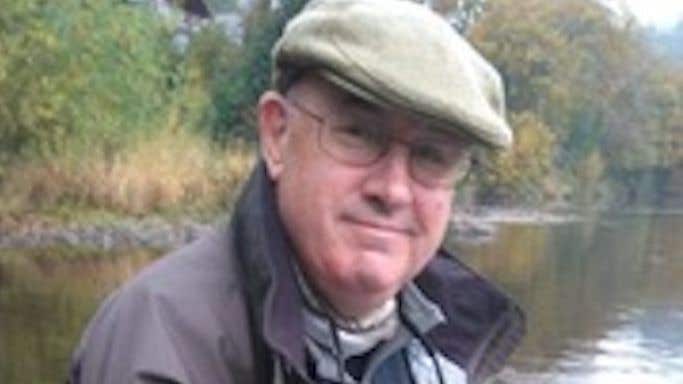Andrew Matthews, whose unedited entry in our seminal wine competition appears below, wrote this particularly long but interesting description of himself: 'I was born on 22nd June 1956. The Suez crisis was raging and England was making a poor fist of things against the Australians at Lord’s. Peter May made 63 on the day I was born, the rest was a shambles.
'We lived in West Wickham in Kent. My mother came from Carlisle and my father from Peckham in SE London. Like many of my generation they met during the war on Charing Cross railway station.
'When I was 12 we moved to Sevenoaks and I was sent to a minor catholic Benedictine boarding school just outside Hereford called “Belmont Abbey.” The school was closed down many years ago.
'I went to Newcastle University in 1975 and read law, qualified as a solicitor and had 10 years in private practice before moving to Norwich with my wife Anne and joining Aviva in January 1991. I specialised in life and pensions work.
'I retired in September 2016. I then fulfilled a lifelong ambition to read history at university. I am just writing my dissertation for my MA, having completed the course at the University fo EastAnglia (UEA). I fly fish with my son and spend too much on wine.
'I have been married to Anne for nearly 28 years, we have two children, Martin aged 20 and Jasmine aged 17. We also have two dogs, a Cavalier King Charles called Rudi and a Beagle called Monty.'
Easter 1967 was an auspicious time for me. It was my first taste of wine. I recall the occasion vividly. I was 11, and in those days hotels weren’t quite as fussy as they should perhaps have been regarding under age drinking. My parents, my sister and I were on holiday with my Aunt and uncle (Uncle Frank and Auntie Betty) and my cousin John who lived in Wigton just outside Carlisle. It was Easter Sunday and my father took us all out for lunch, along with my grandfather and his “lady partner.” (My mother always insisted “Auntie Jean” was the “live in housekeeper” but the family rumours were slightly more cynical). We were all taken to Armathwaite Hall, a rambling country house hotel on the shores of Bassenthwaite lake.
Around that time my father did quite a lot of what was probably euphemistically categorized as “business entertaining” in London that amounted to long lunches at the Great Eastern hotel by Liverpool Street station. Possibly as a result of that corporate indulgence he had acquired a knowledge of well known wines and ports.
Ever keen to demonstrate his newly found vinous skills, towards the end of what became a legendary Easter Sunday family lunch, as pudding orders were being taken, my father said to my uncle:
“Frank, would you like a dessert wine?”
Uncle Frank looked rather perplexed and replied:
“Well, Neil I have never had a dessert wine before.”
That settled matters. The wine list was requested and as dad thumbed through its thick cream coloured pages, stapled into a large plastic “Burgundy coloured” folder his eyes suddenly lit up:
“Oooh Frank, they’ve got Chateau D’Yquem.”
‘What’s chateau D’Yquem?” Frank enquired possibly by this time looking more perplexed than before. …..
My grandfather, whose knowledge of wine had been acquired when he was a lieutenant in France in the First World War, went apoplectic, grabbed the list and said, loudly and slightly disapprovingly, “Chateau D’Yquem” which soon turned to shock when he saw the price:
“Eight pounds, two and six!” He shouted across the room to the sommelier “Have you got a miniature?”
My mother and auntie Betty were now conscious of other people looking at us from across the restaurant. A few minutes later the sommelier returned with what I remember was a large silver tray on which stood an empty bottle and several Paris Goblets filled with a gleaming slightly viscous gold liquid. The next thing I knew was that one glass had been put in front of me. For just a moment I felt very grown up, despite the fact that I was wearing shorts and knee high woollen socks.
I looked at the glass and hesitated; by this time I suspect my mother could visualise matters “getting out of hand.” All the adults had probably had a few; Gin and Tonic, Campari and Soda plus wine. (drink drive in those days were in their infancy, and, apparently, my uncle was on good terms with the local senior constable always referring to him as “Henry” so no danger from that direction….)My father in a moment of ebullient generosity had ordered what was probably the most expensive wine on the list and now I was given some. For a moment my mum was Sergeant Wilson to dad’s Captain Mainwaring. (the expression: Is this wise sir? was probably etched on her face).
“Neil” she said to my dad, “Should the boy be having any?” (I was always referred to as “the boy” until I was about 22).
“Oh let him try it” My dad replied rather too nonchalantly for my mother’s liking.
I tasted it. I suspect the table was equally divided as to whether I would either be sick or spit it out.
I pronounced my verdict to the expectant company: “Hmm it tastes like tinned apricot juice”
My grandfather was appalled.
“Take it away from him immediately he’s far too young to appreciate it.”
So the glass was snatched away from me and given to my cousin John (who was 16 at the time and no more a connoisseur of fine Barsac and Sauternes than I was).
Ironically, as the years have passed and I have read about Yquem I have often seen the word “Apricots” in tasting notes. The word “tinned” doesn’t appear but to some extent I felt my comment was vindicated although it didn’t seem that way at the time.
